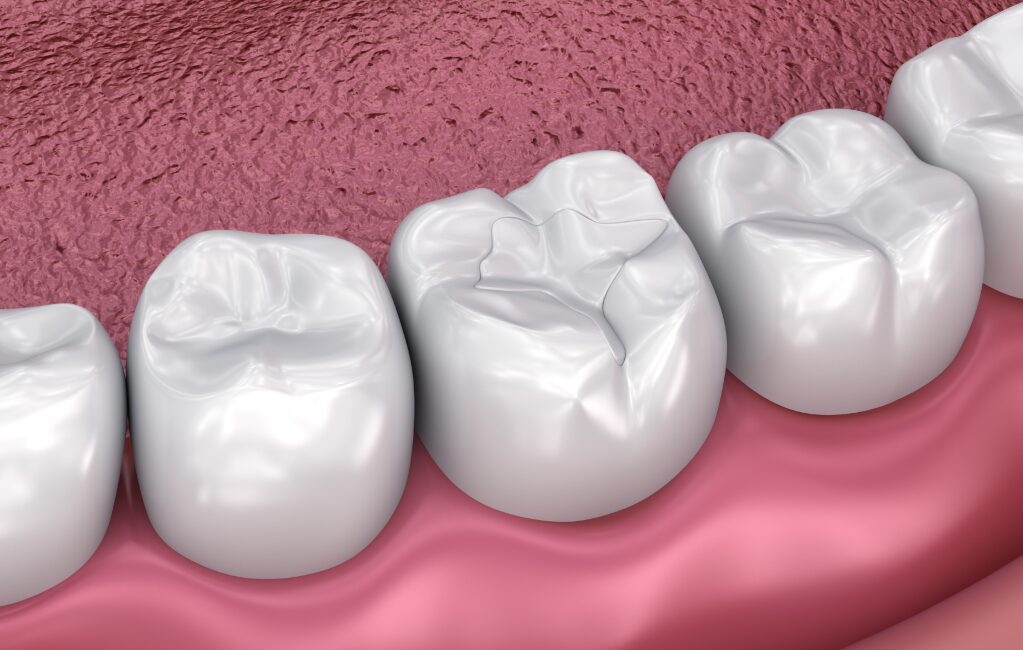Preventive Fillings & Sealants for Chicago Families
Dental fillings are an important part of maintaining good oral health. They are used to treat cavities (tooth decay) by removing the decayed portion of the tooth and filling the space with a material such as composite resin, amalgam, or gold. Fillings help to restore the function of the tooth, prevent further decay, and protect the tooth from damage or infection.
How do dental Filling work?
-
Numbing the area
The dentist will administer a local anesthetic to numb the area around the affected tooth.
-
Removing the decay
The dentist will use a drill or laser to remove the decayed portion of the tooth.
-
Cleaning the area
The dentist will clean the cavity to remove any debris or bacteria.
-
Applying the filling
The dentist will apply the filling material to the cavity and shape it to fit the tooth.
-
Checking the bite
The dentist will check the patient's bite to ensure that the filling does not interfere with the patient's ability to chew.

Why Sealants are important?
Sealants are an effective way to protect teeth from decay, but they can be especially beneficial for children or teenagers whose poor oral hygiene habits make them susceptible.
They are made of plastic and applied to the chewing surfaces of back teeth to prevent tooth decay.
Why People Love Minty Dental?
EXCELLENTTrustindex verifies that the original source of the review is Google. I love the office! Recommend to everyone great prices and even better staff!Posted onTrustindex verifies that the original source of the review is Google. Great office definitely coming back for all my needs!Posted onTrustindex verifies that the original source of the review is Google. Clean and friendly staff, check in was quick, everything went smooth. Everyone is knowledgeable and makes you feel like you’re right at home. They are all very respectful and good at what they do. Highly recommend this place for your next visit to get any dental work done.Posted onTrustindex verifies that the original source of the review is Google. Went to get my cleaning there and everyone was very nice and professional. I love that they explain every step to you and the place is very clean ❤️Posted onTrustindex verifies that the original source of the review is Google. Great office highly recommend anyone on a budget and looking for good care!Posted onTrustindex verifies that the original source of the review is Google. Excellent servicePosted onTrustindex verifies that the original source of the review is Google. The dentist was incredibly kind, knowledgeable, and took the time to explain everything in a way that made me feel comfortable and informed. I had a cleaning and a check-up, and everything was done efficiently and with great care. I really appreciated how gentle the hygienist was throughout the process.Posted onTrustindex verifies that the original source of the review is Google. Had a great experience with them, all the staff were friendly. When to get a check up was nice and clean.Posted onTrustindex verifies that the original source of the review is Google. I’ve been a patient of Dr. Marjan at Monty Dental for over a year. She is excellent and gentle . Her support staff are friendly and efficient. The waiting area is attractive and comfy. The treatment rooms are comfortable and totally modern. I recommend Dr Marjan and Minty Dental.Posted onTrustindex verifies that the original source of the review is Google. Excellent customer service and cleaning experience
Before & After
A natural look for our patients’ missing teeth, it’s your turn now to get the smile you deserve.
Before
After
Before
After
FAQs
A natural look for our patients’ missing teeth, it’s your turn now to get the smile you deserve.
Can anyone get dental implants?
Most healthy adults with sufficient jawbone density and gum tissue can get dental implants. However, certain medical conditions, such as uncontrolled diabetes, may make dental implant surgery less successful.
What is the cost of dental implants?
The cost of dental implants varies depending on several factors, including the number of implants, the materials used, and the complexity of the procedure. On average, a single dental implant can cost between $1,000 and $4,000.
Are dental implants covered by insurance?
Some dental insurance plans cover a portion of the cost of dental implants, but coverage varies widely. It’s best to check with your insurance provider to see what is covered under your plan.
How long does it take to get dental implants?
The dental implant procedure can take several months, as it involves several stages, including implant placement, osseointegration (the process of the implant fusing with the jawbone), and crown placement. The exact timeline depends on the patient’s individual needs and the complexity of the procedure.
How do I care for my dental implants or bridges?
Good oral hygiene habits, including brushing twice a day, flossing daily, and regular dental checkups and cleanings, are essential for maintaining the health and longevity of dental implants and bridges. Additionally, patients should avoid chewing on hard foods or objects and should wear a mouthguard if participating in contact sports.

